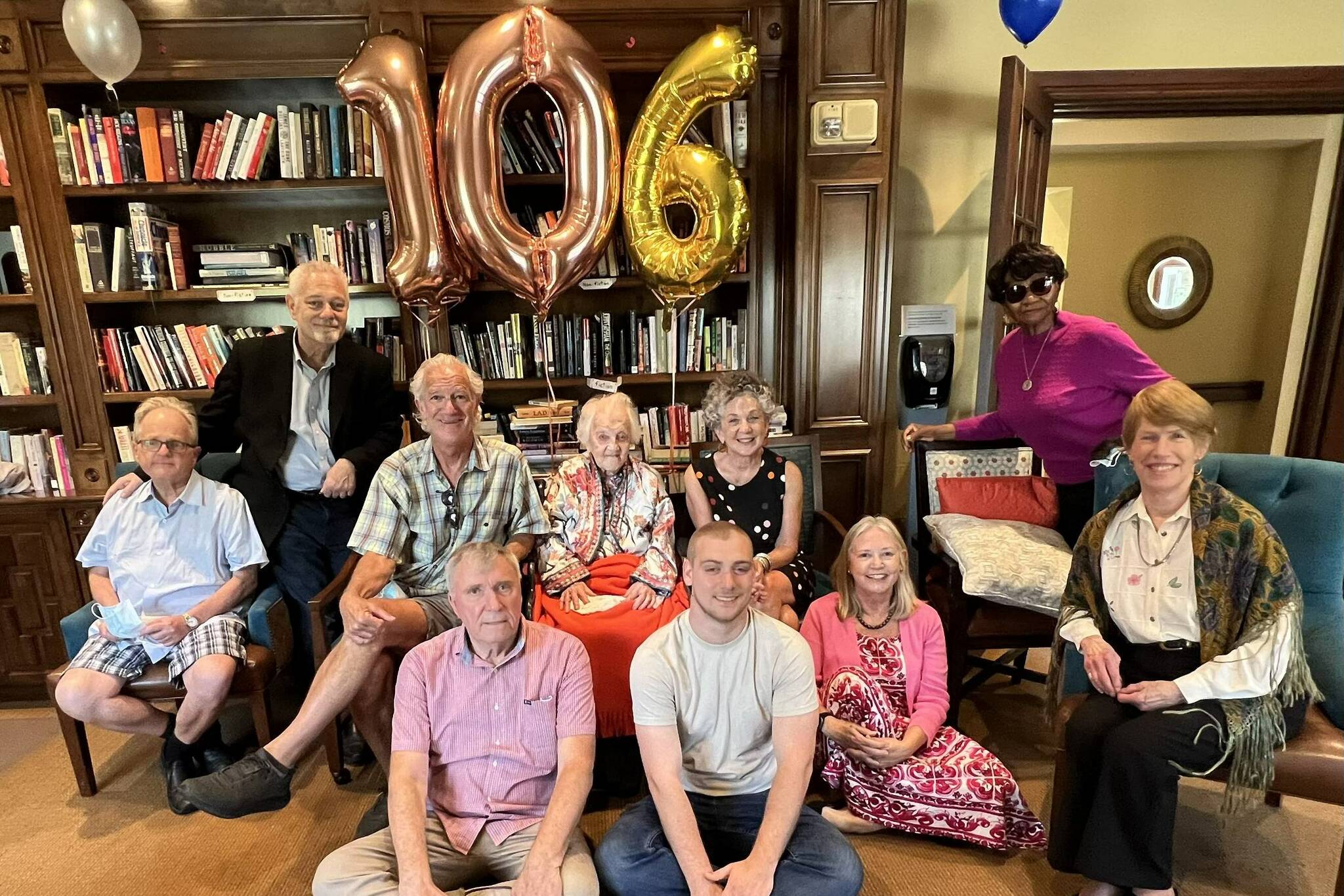This Independence Day, I flew down to Oakland — as I do every year — to celebrate the birthday of my great-aunt Hilde Bruell, who just turned 106.
At Hilde’s age, putting on a birthday party is a production. The family arrives a couple days early to prepare, and remind her that her big day is coming up. (If you can wake up and remember what day it is at 106, hats off to you.) Then, on the Fourth, we and her excellent nurses help her pick an outfit, fix up her hair, and get her into her wheelchair so she can be taken to the gathering room at her senior living center.
She has lived a storied life: The Austrian Jewish side of my father’s family fled Europe in the 1930s as Nazism swept through their homeland. After many years, Hilde eventually landed in the Bay Area, while her brother Bertold — my grandfather — moved to Federal Way, where he became the city’s first family doctor and contributed to the founding of the St. Francis Hospital.
Memories of pain and joy come out unbridled when we visit Hilde. Her mind compels her to relive the horror of Hitler’s forces, like the sight of Nazi troops stabbing her parent’s bed with bayonets, thinking her father Norbert was hiding under the sheets. She recalls dancing for the king and queen of England in her early 20s, and refusing to curtsy like the other dancers because “(They were) not my king and queen.” (Instead, she bowed and firmly shook their hands.)
That Hilde was born on the 4th of July is pure poetry, because she often credits the Americans for their role in fighting Nazi Germany and in accepting our family into their country when their own homeland became inhospitable.
There are many more stories, beautiful and funny and terribly sad, and I plan to record as many of them as I can while Hilde is still with us. But I never would have learned any of them, or gotten to know this lovely woman, if not for our family deciding to make an effort to care for her in her old age. And that’s why I’m writing this column.
I love visiting Hilde, but she is not what you’d call a “chill” personality. Her high expectations of the people around her and sometimes-prickly personality could put off someone who doesn’t know her very well. When I come to visit, I am barraged with questions: “Do you have a girlfriend? (Not yet.) Why aren’t you working at CNN by now? (Not interested.) When are you going to have children? (Can we go back to the girlfriend question?)”
Many of us have family we don’t keep well in touch with, and there are all sorts of reasons: They’re too far away, an old argument drove us apart, or maybe we just don’t know how to reach out at all. But Hilde has taught me how much can be gained from making the effort.
At her age, it’s not easy to go out and make new friends, so family is far and away the most important thing in her life. After the businesses, the lovers, the concerts, the Nazis and everything else that has patterned her life, family is the thing that remains. And it hasn’t always been easy for Hilde and her family to be together.
But now, at the end of her life, we have been able to reconnect with an amazing, complicated woman. We’ve helped Hilde tell her stories, resolve her unfinished business, reconcile with loved ones, and even sneak in some chocolate, wine and potato knishes. And she’s helped us learn how we want to be treated when we’re old and frail.
Reflecting on your inevitable death is an efficient way to focus on what you want out of life, and my parents and aunt and uncles and I have had a lot of opportunities to talk about getting old and dying — all the funny, gross, surprising and spiritual parts — in the last few years.
None of this is to say that you are obligated to try to patch things up with an irredeemably toxic or abusive family member. There is value in working through a prickly relationship, but a parent, child or sibling who regularly belittles, endangers or otherwise disrespects you is probably not worth the effort. They’ve made their choice to push you away, and you’re allowed to keep that distance.
But making the effort to know my sometimes-prickly, usually-sweet great aunt has provoked growth in me I didn’t know I was capable of. My aunt likes to remind me that visiting Hilde is what we Jews would call a “Mitzvah” — a good deed. But I get so much out of the visits that I see it as a two-way street. I’ve learned about my family history, about elder care, about the value of working hard and treating people honestly and giving people a hand when they’re down on the ground.
Two days after her party this year, Hilde had completely forgotten the whole thing, and wanted to know why we’d neglected to celebrate her birthday. It took photographic evidence to convince her we’d all been there, which is a good reminder that you should take lots and lots of photos at these kinds of things.
And if you want to have a party like Hilde’s, if you love someone but you don’t know how to talk to them, try to find a way to change that. We only get one shot on this Earth to make things right, and I’ll never forget the time I’ve spent with Hilde.


